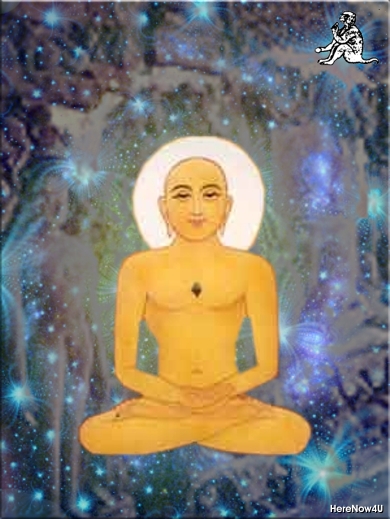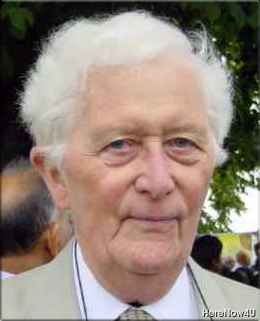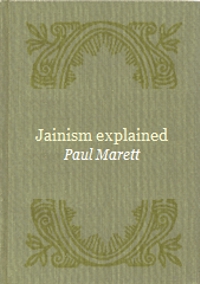
Let us start with karma.
(Do not be put off by the fact that some of these terms are not familiar in plain everyday English:
Every science has its own technical words, and the science of religion is no exception.)
Karma just means actions, or deeds.
When we talk about the 'law of karma' all we mean is that a person's physical and mental make-up and fortune in life can be traced back to the effects of his or her previous actions, in this, or an earlier, life. It is common sense really.
If I eat too much I shall get fat (the effect of my actions).
If I control my appetite then I shall not.
If I do not control my desire for possessions then I shall get greedy and unpleasant.
If I do not control my attitudes to other living creatures then I shall get violent and unpleasant.
All these things add up: all my actions and thoughts help to make the sort of person I am.
And they obviously have their effects on my position in life.
It is true that in the short term violent or greedy or dishonest people often appear to succeed in life, to reach high positions, acquire wealth and live in comfort, even though they are feared or disliked by pleasanter, more honest people.
But Jains look at the long term. They see that violence and greed and dishonesty build up conditions within the individual which are certain to have their effect eventually.
Every action, whether it is physical or mental, has its effect.
The person who commits continual violence will find himself (or herself) becoming more and more bound up in the ways of violence, with a personality becoming more and more twisted and unpleasant.
It may take two or three lifetimes, even more, for the effects really to show.
But one cannot escape them.
Of course good actions, kindness and non- violence and lack of greed equally have their (very different) effects on the individual's life and personality.
Not only outward actions count but also inward thoughts.
A person who is subject to inward passions may perhaps be prevented by force of circumstances from giving outward expression to them.
There is obviously no virtue in refraining from violence or acquisitiveness because you are prevented by circumstances you cannot control. Suppose that you want to injure a person and you attack an inanimate dummy, fully believing that it is that person.
You may not be guilty by law, but morally you are as guilty as if you had not been mistaken.
Of course, if you have violent or greedy thoughts and consciously manage to control them, you are less blameworthy. That is why, a few lines back, we said that every action, whether it is physical or mental, has its effect. Our condition in life is the result of the things we do and the things we think, of our actions and our attitudes.
Jainism is particularly concerned with ethics, with matters of right and wrong, with morality in its widest sense.
This will be apparent to the reader of this small book.
At this point let us remember that to the Jain the great ethical principles are five in number.
- Most important is non- violence, towards all living creatures. The other four are
- truthfulness,
- sexual restraint,
- not taking the property of others, and
- not seeking to accumulate excessive possessions.
Now the effects of karma appear over many lifetimes of any individual. We know that some people argue that when the death of a physical body occurs, that is the end of the individual. Frankly this does not seem very probable: is it likely that all the thoughts and feelings, the ideas and ideals, the love (and hate), that make up me, or you, suddenly stop when the body dies? Jains believe, as indeed do most Indian (and Western) religious thinkers, that the physical body is only a container for something much more important, for the real individual inside it.
This real individual (Jains call is jiva, sometimes translated as 'soul' or 'self') leaves the body at death and finds another body, another container, in which it lives out another life. Naturally the jiva, which is the real personality of the individual, is still bound by the effects of its previous behaviour, its karma.
The condition of the jiva, as affected by its previous karma, will determine what sort of new life it will enter into. The effects of a violent and greedy life may be many lifetimes of misery before the individual has worked all the bad effects out of the system.
Equally the individual whose personality has been shaped by good and loving behaviour in past lives may now be leading a good and pleasant life.
It is very important to remember that every living thing, not only human beings, is basically a jiva.
In the universe are countless myriads of jiva, whether contained in the simplest single-celled living creature or in complex beings with many senses and high intelligence like humans.
From creatures so tiny that we cannot see them, to plants, birds and animals, all are jiva. And there are beings also, beyond our normal understanding, living their lives, according to their karma, in the heavens and hells.
In our previous lives we, you and I, have passed through many different forms, and in the countless lives to come we shall pass through many more. (This is, of course, the reason why Jains place such strong emphasis on ahimsa or non-violence: all living things are jiva, they are all important, even the smallest and apparently most insignificant, and the true Jain will try his hardest to avoid harm to any.)
Jain scholars from earliest times right up to the present have devoted much thought to elucidating and expanding the explanations of the karma processes as they are given in the ancient Jain scriptures.
This is not easy to put into simple terms.
As we said earlier, the word karma basically means actions.
But Indian thinkers use the word karma for the process, or link, by which the actions of an individual have their effect on the soul. In most Indian schools of thought karma is seen as some sort of immaterial force or power, generated by the individual's actions and feelings, which then produces the effects of those actions on the soul.
Jainism has made a unique contribution to the study of karma.
Karma is described not as an immaterial force but as tiny material particles. This fits in with the Jain view of the universe as having an actual material existence which is not just an illusion (as for example the Buddhists hold) when its deepest nature is fully understood. (Modern scientists will be on familiar ground here.)
These particles permeate the entire universe and some of them flow into the soul of the individual, a process known as asrava, or simply 'inflow'. In the ordinary way of things the individual soul or jiva is subject to feelings of desire or hatred, and these make it receptive to the karma particles which, as it were, stick there or are bound to the soul (bandha or 'binding').
It might be helpful to think of the karma particle, in modern medical terms, as something like a virus. In certain conditions of the body the virus can move in and stick there, causing changes in the body which lead to illness.
Similarly, in certain condition of the soul (jiva), that is when the individual has passions of desire or hate, the karma particles can move in and cause a deterioration in the condition of the soul. The perfect functioning is impeded and the individual becomes ignorant, confused, changed. Indeed, just as the virus can have such effects on the body that a person's whole life is changed, perhaps from an active and busy life to one bedridden and helpless, so will karma affect the soul that its whole existence in one life, or a series of lives, is affected. Jain thinkers have developed the theory of karma and have described the many types. To go into details is beyond the scope of this present small book.
Briefly, the types of karma fall into two divisions. The first division determines our future lives. One type of karma determines how long our life will be and whether in human, animal or other form; another determines our bodily state and destiny; another our status and circumstances; the fourth type, of this division, determines the joy, sorrow, pleasure, pain of life. It is believed that these types of karma have to work out their effects: there is nothing we can do to avert their consequences. The karma of the second division, however, may be cleared from the soul by austerity and spiritual discipline.
Again there are four types, the effect of each is to obstruct or obscure one of the qualities of the soul, its intuition, its knowledge, its energy or its bliss.
To sum up so far, we are what we are now, in this life, because of the effects of karma. It was our own thoughts and actions in the past (in this life and in previous ones), our hates and desires, which created the conditions in our soul which allowed the karma particles to adhere and to impede the functioning of our soul.
We are now what we, by our past actions, have made ourselves.
This is fundamentally important: we can not put the blame for our present behavior or our position in life on some remote god or blind fate or luck.
In the words of an English poet: I am the master of fate, I am the captain of my soul.
Now the key to all this is passion. It is our feelings, our hatred for people who upset us, for other creatures which annoy us, and our desires for possessions, for prestige, for comfort, for sex, for enjoyment, which create the conditions in our jiva, or soul, which allow the karma particles to stick there.
Get rid of these feelings of hate and desire: the karma particles will drop away and the inflow of karma will be stopped.
However this is not easy, indeed it is very very difficult indeed.
As far back as we can go in the eternity of time each jiva has had some imperfections in it and these have allowed the passions to creep in, desire and hate.
And these have allowed the karma particles to keep coming in.
And so the jiva has moved on to another rebirth, perhaps better, perhaps worse than the last.
And another and another and another...
We are tied to this almost endless chain of death and rebirth, death again and rebirth.
How can we break this chain?
Only by eliminating the accumulated karma in our soul and stopping any more from adhering to it.
The process has two stages.
- the inflow of karma particles must be stopped (samvara, 'cessation').
- the accumulated karma particles must be shed (nirjara, 'shedding').
In the normal course of events the karma particles will in due course produce their effects and drop off but by moral and spiritual practices this process may be hastened so that the soul becomes free from the accumulated karma.
The key, of course, is to get rid of all passion.
Let us look at this a bit more closely.
The basic passions are
- hate and desire,
or we can subdivide them into
- anger and pride,
- deceit and greed.
No body is free from these and, unless checked, they build up in the individual, leading him or her to more and more destructive thoughts and behavior.
It can be very hard to get rid of these unpleasant passions, it will take a very long time and hard spiritual effort.
Even when the individual has controlled them it is possible to slip back.
The path is still difficult and the individual must be prepared to avoid the most harmful activities, killing, accumulating wealth, theft and so on.
These every Jain man and woman must avoid.
But there is another, more rigorous stage, possible only for the monk or nun who has given up worldly possessions and ambitions.
Even monks may find that they are unable to control their passions so completely as to avoid all harmful acts.
Even if they do, they can still lack the drive and sense of purpose which takes them to the final renunciation of passion.
But let us pause here for a moment.
What is the object of all this?
Why try to get rid of passions and hence of karma?
Why try to break the chain of death and rebirth?
Sometimes we are unhappy, true, but sometimes we are happy.
Is it really worth the effort?
This is a common point of view: many individuals have never got round to thinking of this seriously (indeed, Jains believe, there are some jiva which never will), or even to considering it.
Indeed in all the worlds it is only human beings who have the real understanding fully to pursue the goal. But is it worth it?
The jiva has many qualities, of which knowledge and bliss are very important.
We, you and I, have knowledge, we know many things, we can look at the world all around us, or indeed at religious doctrine, and understand some of it.
We also feel, do we not, occasionally an underlying sense of bliss, of happiness, of tranquility?
Sometimes we feel this strongly for a short time, but often, indeed most of the time, it is hidden, just as most of the facts of the world, of the universe, of religion, are hidden from us.
Now the jiva really and basically has the ability to comprehend, to know, all knowledge, and equally it has the potential of complete and unlimited bliss and tranquility.
It is important to appreciate the basic underlying nature of the jiva or soul or essential individual self. In its purest state every individual has the capacity of omniscience, of perception and knowledge of everything in the universe.
Total knowledge (the Jains call it kevala jnana) is a difficult concept to comprehend.
We meet people whom we admire for their vast range of knowledge, but even these know only a fraction, a tiny fraction, of the things which can be known. Human knowledge is very limited, very imperfect.
Kevala jnana, total knowledge, perfect knowledge, is something quite different, limitless in scope, not restricted by space or time, a complete and simultaneous understanding of the whole universe.
Deep down within every individual self there is this faculty of universal comprehension.
The other main characteristic of the pure and essential jiva is total bliss or tranquility.
This, again, is a state which is not easy to understand.
Happiness, contentment, tranquility, are fleeting in this world.
Even the most placid person is beset often by the worries and cares of human life.
The mind never ceases acting, external thoughts disturb the rare moments of calm which we can enjoy.
In its deepest being, calm and tranquility are the natural condition of the jiva, but only in the pure and perfect state can the individual jiva return to this.
What then is it which is clouding over the light of boundless knowledge, which is disturbing and troubling the pure bliss of the perfect individual?
The particles of karma prevent the jiva from realizing its full potential and tie it to the cycle of birth and death.
We can only dimly imagine the state when karma has been totally eliminated from our soul and we are free, completely free, with boundless knowledge and utter tranquility.
This is the state called moksha and this is the goal of all spiritual endeavor.
When the individual has become completely freed from all karma, and has achieved boundless knowledge, but still remains in this world, then that individual is known as an arhat. F inally the arhat passes from this world and as a siddha enters the ultimate state of moksha.
We have looked at the ideas of karma and jiva. We must first understand these and then we can investigate what we must do in life to follow the path which is thus pointed out to us.
Jainism has a program of spiritual development for everyone.
It is not easy nor is it short, it is very hard and very lengthy. But this is discussed later in the book.
To sum up, the whole aim of Jain philosophy is to purify the soul so that one has permanent bliss and happiness. The whole Jain way of life is directed to this ultimate goal.
 Dr. Paul Marett
Dr. Paul Marett
